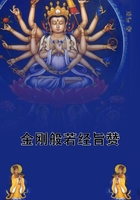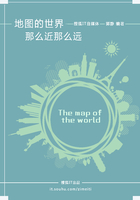The Cost Theories (continued). Capital as an Element in Cost In any compete estimate of costs there can be no doubt that the figures representing the necessary consumption of capital must be added to the costs of labour. Of two products costing equal amounts of labour, that one must be dearer for which the greater consumption of capital is required. Thus it has been calculated ever since capital was possessed by man, and thus it will continue to be calculated, even in the communistic state.
The necessity for it is so obvious that even the adherents of the labour theory bow before it. Even they admit that the costs of capital co-operate in determining the value of products. There is nothing for it but to try and reconcile their theory with this incontestable fact. To do this there is only one resource, but one so singular that only a kind of theoretical infatuation could avail itself of it. If all costs go back in the last resort to labour, and if the existence of capital-costs cannot be denied, capital-costs must ultimately go back to labour-costs -- capital must be labour.
The attempt to reduce capital to labour has been made in two ways, both of them following out the same fundamental idea.
Labour must be shown to be the primary economic element, and capital represented as a secondary or derivative form of it.
Labour value appears as the primitive economic value from which capital value is derived.
The first of the two efforts made to prove this proposition is deduced from the manner in which capital works. The effect of all capital is either to save labour or to increase the result of labour. Does not a machine save human labour? Does it not bring it to greater productiveness? As a matter of fact, there are forms of capital which are able to render services as human labour renders them, and which can, to that extent, be substituted for labour. But can this be maintained of all capital? What labour power, for example, does a raw material replace? And, on the other hand, it may undoubtedly be said of many kinds of labour, with equal right, that their effects are either to save capital or to increase capital. Capital frequently supplants labour, but frequently also labour supplants capital.
Where wages are low every undertaker will save his capital and employ more labourers.
The second attempt is much more important. It points to the origin of capital. Here we go back to the first beginnings of the acquisition of capital. All capital has, in the last resort --says this theory -- been obtained by labour, and on this ground all capital ultimately represents labour. In the most varied forms, and illustrated by a perfect wealth of examples, this thought finds itself in many writers. It is found in Adam Smith and Ricardo, and it is triumphantly adopted by the socialists in order to make good their contention that all costs are labour-costs, and that capital is simply "materialised labour."It is not easy to imagine greater contradictions than the labour theory presents when it takes up this line -- more particularly in the extreme socialistic conception of it. Let the reader judge! First, the economic valuation of labour is explained by the peculiar nature of labour -- that its employment necessitates personal sacrifice. Then capital, after being recognised as materialised labour, and so labour that has become impersonal, is subjected to the same valuation; -- a proceeding for which there is no possible justification. First, it is asserted that labour is the only productive power; that it alone produces, creates goods, creates value; that capital is merely its dead instrument: and then capital emerges from its shell and becomes labour, which contributes its part in determining the cost value of goods. At first it is asserted that capital and labour stand in the strongest opposition to one another, and then every distinction disappears save the one, that capital, like labour, may indeed give value, but may not, like it, receive value. Materialised labour is labour, but no share in the return shall be imputed to it.















